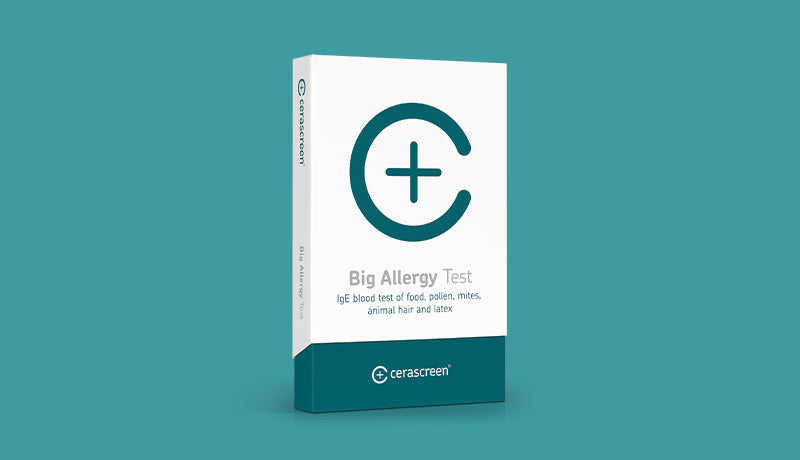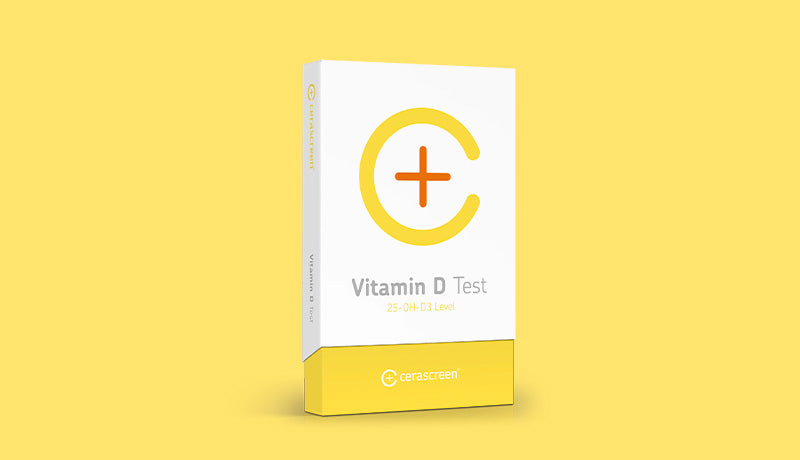What is selenium? Selenium is a versatile mineral that is essential for our immune system and thyroid gland. Not only a selenium deficiency but also an excess of selenium can pose a great threat our health. The good news is that just one Brazil nut a day can provide you with a sufficient amount of selenium.
A deficiency will negatively affect you both physically and psychologically. But too much selenium, as already mentioned, is also unhealthy and can even be life-threatening.
In this article, you will learn about foods with selenium that you can incorporate into your daily diet in order to reach your daily selenium requirement. Not only this – you’ll find out about selenium deficiency symptoms or, conversely, signs that your selenium intake is too high. We’ll also explore the dangers of selenium supplements if you do not take the right dosage – so read on!
What is selenium?
Selenium is an essential trace element, which means that it can only be absorbed through foods with selenium, and you only need a small amount of it. The human body stores 13 to 30 milligrammes of selenium, the majority of which is deposited in the muscles and thyroid gland.[1]
The element selenium was discovered in 1817 and named after the Greek moon goddess Selene. A total of 200 years later, researchers have still not fully explored the potential of the trace element. Selenium influences vital processes that occur throughout our entire body – namely, in our immune system, nervous system, muscles and thyroid gland.
Did you know that when metal containing selenium is burned, a radish-like smell is created?[2]
What does selenium do?
Selenium forms important proteins, which boost our immune system and prevent cell damage. It reinforces the function of both vitamin E and vitamin C as immunity-boosting vitamins. Moreover, together with iodine, selenium produces thyroid hormones, which boost sperm production and maintain nervous system function. Without selenium, the liver and pancreas would not be able to perform their digestive and blood sugar functions.[3, 4]
Selenium can help bind the heavy metal lead when there is too much of it in our bodies. A heavy metal in bound form can no longer pose a threat to the body and can be excreted more easily.[5] Find out more about heavy metal poisoning in our Health Portal article.
What is selenium deficiency?
The soil in Europe has lost a lot of selenium content over the years. Climate change is supposed to be to blame for this, as it promotes extreme weather conditions. The result is that heavy rainfall washes the selenium out of the soil, and prolonged dry periods also reduce the selenium content.
If there is too little selenium in the soil, it cannot accumulate sufficiently in plants, making food less selenium-rich.[9, 10] Surveys on how much selenium people consume in the United Kingdom revealed that selenium intake has dropped over the last 50 years. The surveys indicate that, on average, people consume as little as 30 to 40 microgrammes of selenium per day nationwide.[27]
Did you know that the soil with the highest selenium content is located in Nebraska in the United States? The soil in China, on the other hand, has a low selenium content.[1]
Who is most affected by selenium deficiency?
Apart from people who eat a diet low in selenium, a deficiency can occur in the following groups:[12, 13]
- Smokers
- Alcoholics
- Women who breastfeed
- People suffering from intestinal diseases (as selenium cannot enter the bloodstream)
- Dialysis patients (as a lot of selenium is lost during blood purification)
What are typical selenium deficiency symptoms?
Because selenium influences processes in almost every part of our bodies, people with low levels of selenium might experience the following selenium deficiency symptoms:[11, 14]
|
Generic complaints |
Fatigue |
| Muscle weakness and joint pain | |
| Immunodeficiency | |
| Impaired sperm production | |
|
Psychological complaints |
Anxiety |
| Depressive moods and mood swings | |
|
Organ complaints |
Thyroid and heart muscle disease |
| Liver disorders |
Food with selenium: what should I eat?
Both animal products and plant-based foods can provide us with sufficient selenium. The amount of selenium found in plant-based foods also depends on where they were cultivated and how selenium-rich the soil was. No food contains as much selenium as coconuts and Brazil nuts. It only takes one Brazil nut a day to satisfy your daily selenium requirement.[7]
Other foods with selenium content include:[8]
|
Foods with selenium |
Microgrammes per 100 grammes |
|
Tuna |
82 |
|
Wheat bran |
60 to 130 |
|
Eggs |
20 |
|
Brussels sprouts |
18 |
|
White beans |
14 |
|
Swiss cheese |
11 |
How do you test selenium?
Whether or not your selenium levels are optimal, this can be easily determined with a blood sample for a selenium blood test. If you or your doctor suspect selenium poisoning, a urine sample can provide clarity. Researchers are also trying to determine the status of selenium using hair and nail analyses. These methods are currently considered inappropriate, however, because the results vary too greatly.[21]
Which selenium supplement is best?
A total of 270 out of 1,073 people – that’s around one in four – stated in a survey on dietary supplements that they were taking selenium supplements. The right supplements can help you optimise your selenium levels, but there are a few things to be aware of.[15]
A good selenium supplement should contain selenomethionine. The body can absorb 90 per cent of this selenium compound. Other selenium compounds such as sodium selenite or sodium selenate can only be absorbed to a limited extent.[1]
According to NHS recommendations, men between the ages of 19 and 64 should consume 75 microgrammes of selenium per day. For women of the same age group, the requirement is 60 microgrammes.[26] Breastfeeding women need to increase their selenium intake to provide their infant with sufficient selenium via their breast milk. To read more about the ideal diet during pregnancy and breastfeeding, visit our Health Portal article, which answers commonly asked questions.
Are selenium supplements safe?
Selenium only benefits your health when you take the right dosage. Thus, a daily intake of more than 300 microgrammes of selenium through dietary supplements can lead to the following health issues:[12, 16]
- Fatigue
- Hair loss, discolouration of the skin
- Nausea, vomiting, diarrhoea
- Bad breath (garlic breath)
- Motor function disorders
If your selenium levels are too high over a longer period of time, your risk of type 2 diabetes and even prostate cancer may increase.[3]
Can you take selenium with vitamin E?
If you unknowingly are deficient in selenium, increasing your vitamin E intake can increase the risk of prostate cancer in men. You should only take combination supplements after discussing this with a physician. In a study published in the Journal of the National Cancer Institute, researchers observed that the risk was increased by 111 per cent.[17-19]
Whether selenium and zinc should also be taken at the same time is still not clear. In a study involving rats, researchers were able to observe a negative effect on the prostate when taking selenium and zinc at the same time.[20]
How are selenium and the thyroid linked?
Our thyroid could not function properly without selenium. Can taking additional selenium help with thyroid problems?
It is not yet clear whether selenium is effective against thyroid diseases such as Hashimoto’s. In one study, pregnant women used selenium, which had a positive effect on hypothyroidism and Hashimoto’s after birth. People with endocrine orbitopathy might also see their symptoms improve with selenium supplementation.[22-24]
In endocrine orbitopathy, the eyeballs protrude significantly. The cause of this is an autoimmune reaction where the immune system attacks the body – in this case, tissue in the eye socket. Many of those affected also suffer from hyperthyroidism.[25]
What is selenium – at a glance
What is selenium?
Selenium is an essential trace element that is stored primarily in the muscles and thyroid gland.
What does selenium do?
This trace element supports immune and thyroid functions as well as male fertility.
What is the daily selenium requirement?
Men should consume around 75 microgrammes of selenium per day and women around 60 micrograms. You can reach your daily selenium requirement with just one Brazil nut.
What are typical selenium deficiency symptoms?
Possible selenium deficiency symptoms include fatigue, depressive moods, increased susceptibility to infections and thyroid problems.
Which selenium supplement is best?
Supplements containing the compound selenomethionine are best absorbed by the body. Do not use a combination of selenium and vitamin E, as vitamin E may increase the risk of prostate cancer in men if there is no selenium deficiency present. The risk of cancer may also increase if you take additional selenium supplements when your selenium levels are optimal. Selenium poisoning can lead to bad breath, hair loss and yellow skin.
Sources
- ‘What is Selenium?’ American Nutrition Association, available at http://americannutritionassociation.org/newsletter/what-selenium
- ‘Chemistry International -- Newsmagazine for IUPAC,’ available at https://www.iupac.org/publications/ci/2011/3305/5_trofast.html
- Rayman M. P. ‘The importance of selenium to human health’, Lancet, vol. 356, pp. 233–241, 2000, doi:10.1016/S0140-6736(00)02490-9.
- Elmadfa I. Ernährungslehre, Verlag Eugen Ulmer Stuttgart, 2015
- Bjørklund G. ‘Selenium as an antidote in the treatment of mercury intoxication’, Biometals, vol. 28, pp. 605–614, 2015, doi:10.1007/s10534-015-9857-5.
- ‘Selen’, available at https://www.dge.de/wissenschaft/referenzwerte/selen/
- ‘Paranuss - Lebensmittel-Warenkunde’, available at https://lebensmittel-warenkunde.de/lebensmittel/fette-oele/samen-nuesse/paranuss.html
- ‘Lebensmittel’, DocMedicus Vitalstofflexikon, available at http://www.vitalstoff-lexikon.de/Spurenelemente/Selen/Lebensmittel.html
- ‘Selen - ein guter Schutz für unseren Körper’, available at https://www.verbraucherzentrale.de/wissen/lebensmittel/nahrungsergaenzungsmittel/selen-ein-guter-schutz-fuer-unseren-koerper-17732
- ‘Selenmangel nimmt zu: Klimawandel hat Einfluss auf unser Essen’, available at https://www.bzfe.de/inhalt/selenmangel-nimmt-zu-29778.html
- ‘Ausgewählte Fragen und Antworten zu Selen’, available at https://www.dge.de/wissenschaft/weitere-publikationen/faqs/selen/
- Die ganze Welt der Vitamine, Mineralstoffe und Enzyme, garant Verlag GmbH, Renningen, 2016
- Selen und Human-Biomitoring Stellungnahme der Kommission ‘Human-Biomonitoring’ des Umweltbundesamtes, available at https://www.umweltbundesamt.de/sites/default/files/medien/377/dokumente/selen.pdf
- Benton D., Cook R. ‘The impact of selenium supplementation on mood’, Biol. Psychiatry, vol. 29, pp. 1092–1098, 1991
- ‘Nahrungsergänzungsmittel’, available at https://www.bzfe.de/inhalt/pressemeldung-7874.html
- Barceloux D. G. ‘Selenium’, J. Toxicol. Clin. Toxicol. vol. 37, pp. 145–172, 1999
- ‘Selen und Vitamin E nur bei Mangel,’ available at https://www.deutsche-apotheker-zeitung.de/news/artikel/2014/05/02/selen-und-vitamin-e-nur-bei-mangel
- ‘Selen und Vitamin E’, available at https://www.bzfe.de/inhalt/pressemeldung-7020.html
- ‘Selenium and Vitamin E Cancer Prevention Trial (SELECT): Questions and Answers,’ available at https://www.cancer.gov/types/prostate/research/select-trial-results-qa
- Daragó A., Sapota A., Nasiadek M., Klimczak M., Kilanowicz A. ‘The Effect of Zinc and Selenium Supplementation Mode on Their Bioavailability in the Rat Prostate. Should Administration Be Joint or Separate?’ Nutrients. vol. 8, 2016. doi:10.3390/nu8100601
- ‘Problematik, Klinik und Beispiele der Spurenelementvergiftung - Selen’, available at https://www.gtfch.org/cms/images/stories/media/tk/tk79_1/mueller1.pdf
- van Zuuren E. J., Albusta A. Y., Fedorowicz Z., Carter B., Pijl H. ‘Selenium supplementation for Hashimoto’s thyroiditis’, Cochrane Database Syst Rev. CD010223, 2013, doi:10.1002/14651858.CD010223.pub2.
- Ventura M., Melo M., Carrilho F. ‘Selenium and Thyroid Disease: From Pathophysiology to Treatment’, Int J Endocrinol. 2017, doi:10.1155/2017/1297658
- Drutel A., Archambeaud F., Caron P. ‘Selenium and the thyroid gland: more good news for clinicians’, Clin. Endocrinol. (Oxf). vol. 78, pp. 155–164, 2013, doi:10.1111/cen.12066.
- ‘Pschyrembel Online | endokrine Orbitopathie’, available at https://www.pschyrembel.de/endokrine%20Orbitopathie/K0FR6/doc/
- ‘Others: vitamins and minerals’ National Health Service, available at https://www.nhs.uk/conditions/vitamins-and-minerals/others/, accessed on 23 November 2021.
- Rayman M. P. ‘Dietary selenium: time to act,’ BMJ (Clinical research ed.) vol. 314,7078, 1997, pp. 387–8, doi:10.1136/bmj.314.7078.387.




